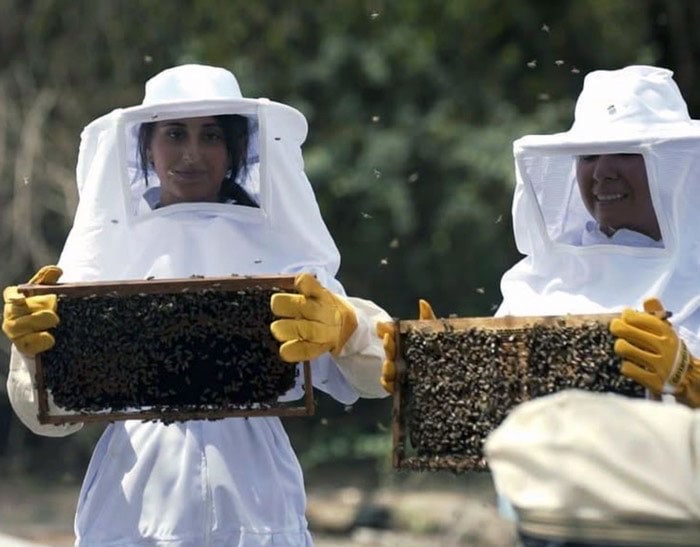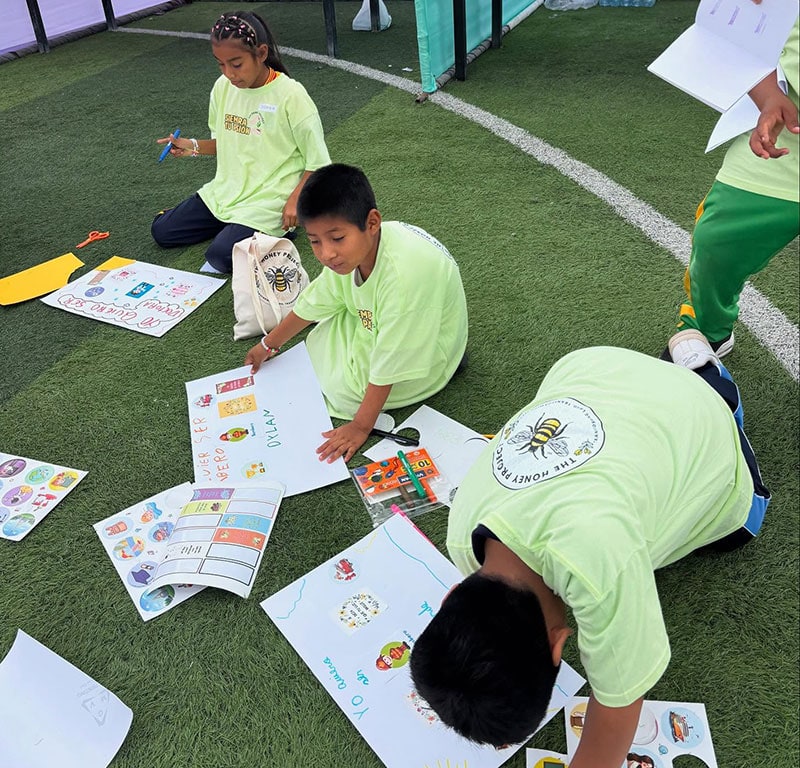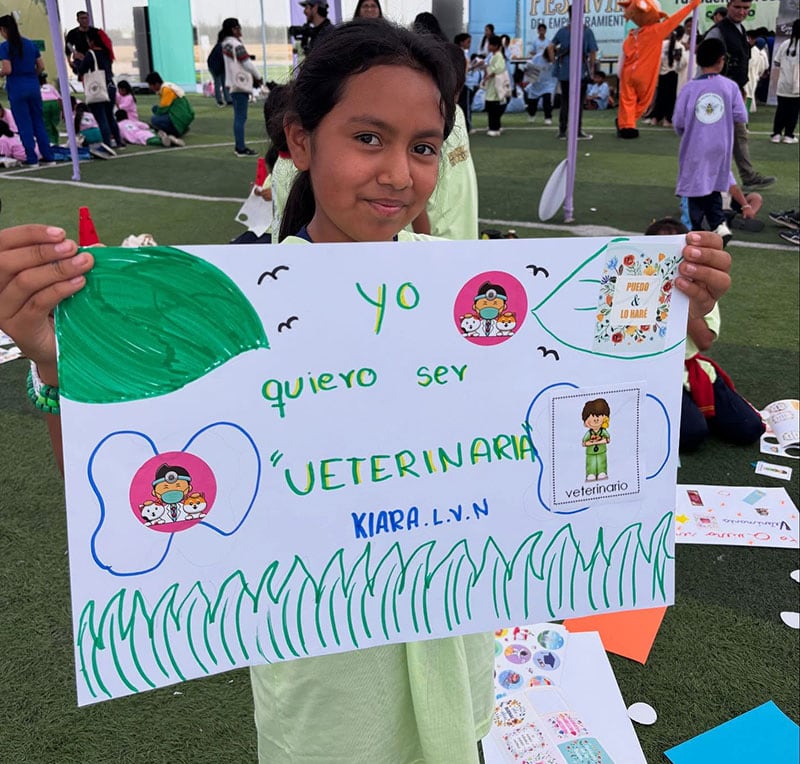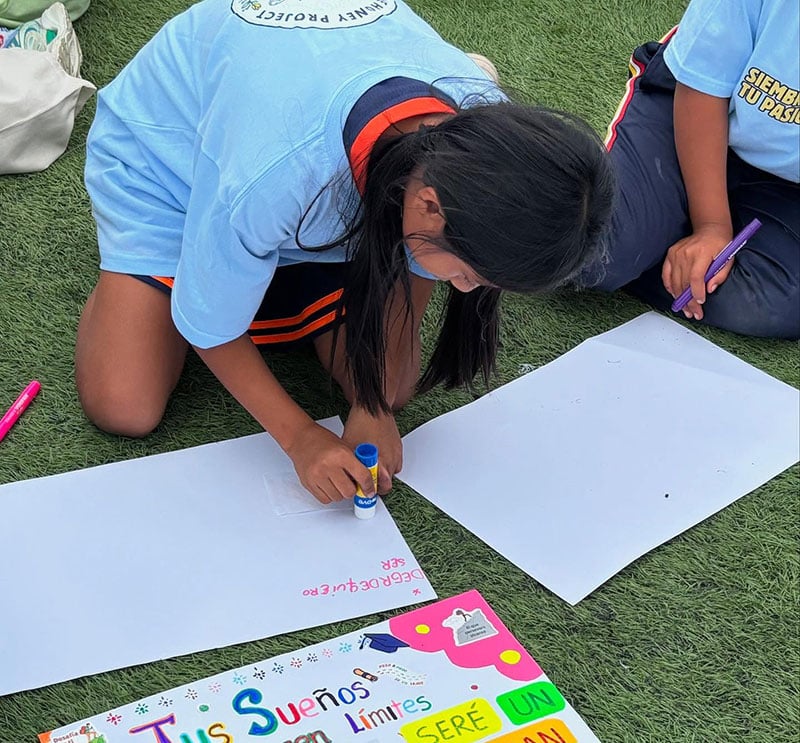Ever go to the supermarket and see blueberries as big as a ping-pong ball? Chances are, Dr. Assil and his wife, Tanaz, have helped grow this delicious produce from the coastal region of Peru.
Does that sound farfetched? Not so fast. The Assils and their partners have developed Agrovision, a global agricultural company specializing in cultivating and exporting premium berries, particularly blueberries, with a significant focus on practicing sustainability and innovation.
One of Agorovison’s locations is La Libertad, a coastal region in northwestern Peru known for its rich history, cultural heritage, and agricultural significance. The other farming area is Olmos, a district in the Lambayeque region of northern Peru known for the massive Olmos Irrigation Project.
A key driver of Agrovision’s success is the Olmos Irrigation Project. This large-scale infrastructure project diverts water from the Huancabamba River in the Amazon Basin through a 20-kilometer tunnel beneath the Andes to irrigate the once-bone-dry lands of Olmos. The project transformed over 43,500 hectares (about 8 miles) of desert into arable land.
Founded in 2012, Agrovision, headquartered in Los Angeles, California, manages over 2,300 hectares of land. Agrovision is recognized for its advanced agricultural techniques, including AI-driven farming, precision technology, and the development of climate-resistant berry varietals like Sekoya, which adapt well to challenging weather conditions.
AI farming helps monitor and manage field variability to optimize the use of resources such as water, fertilizers, and pesticides. Precision farming systems use sensors, drones, and AI algorithms to analyze soil conditions, crop health, and weather patterns.

The result: Agrovision transformed land resembling a desert into a thriving farming community with 20,000 workers, many of whom commute 2.5 hours each way by bus to work. “The farmers are now middle class,” remarks Tanaz. “Agrovision is committed to environmental and social responsibility. It implements regenerative agricultural practices to enhance soil health and reduce the carbon footprint. The company has set a goal to achieve net-zero greenhouse gas emissions by 2030. Additionally, it engages with local Peruvian communities.”
Agrovision is changing the demographics in the region. The company heralded the dawn of the dual-earner household in Peru. Many of the local women are now employed, and one can imagine the ripple effect of this occurrence.
“They are not asking us for help. It’s just that there’s a stark contrast to what we are used to seeing in terms of living conditions and school conditions for our kids,” says Tanaz. “One of the key points my son noticed is how happy the kids are and how happy they are to share.”
The Honey Project gives back to children
The Honey Project, a fundraising effort involving Kerry and Tanaz, utilizes beekeeping, honey production, or environmental conservation efforts that incorporate beekeeping to support local communities. Selling honey bypasses the need for donations.



“The schools near the farms are very remote rural areas surrounded by large agricultural projects,” explains Tanaz. “We work in partnership with the schools and tackle one project at a time.”
This year, The Honey Project:
- Built two libraries at Panala School.
- Purchased book furniture.
- Installed projectors in the classroom.
- Painted classrooms.
- Given school supplies to teachers and kids
- Taught English to the kids via Zoom.
- Most importantly, the Honey Project has given them hope. They know someone cares about them.
How do Kerry and Tanaz find the time to help school-age children in South America? Sheer benevolence. “It’s in everyone’s interest to involve the kids and give back to humanity,” says Tanaz. “The children’s parents work on our farm, so we must give back to them.”
More information on The Honey Project can be found here.














